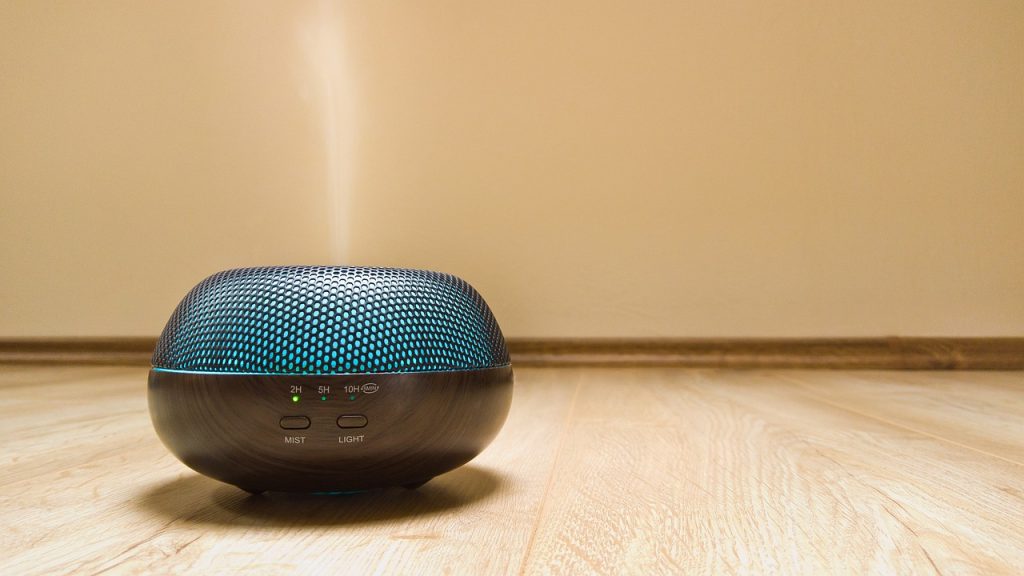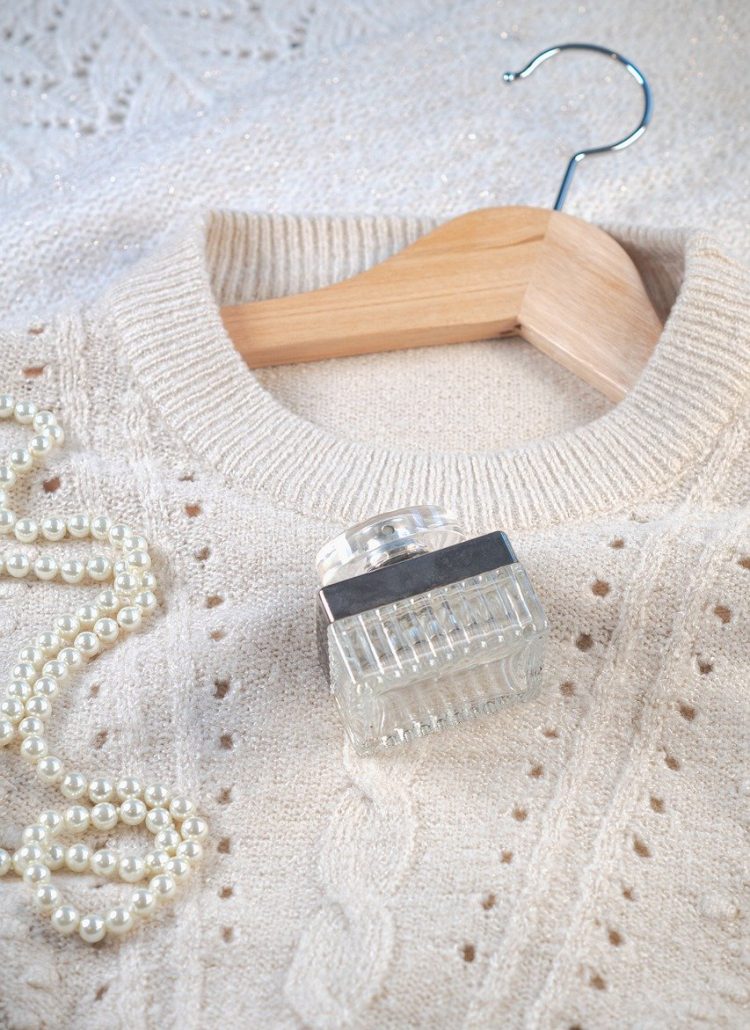If you’ve been using your diffuser for a while, you may have noticed that it’s started to smell a bit…off. This can be a major turn-off and make it difficult to enjoy the benefits of aromatherapy. But don’t worry – getting your diffuser clean and odor-free is easy!
I’ve owned several diffusers for several years now, so I’ll be giving you my 5 simple steps to get your diffuser smelling fresh again! But first, let’s talk about what might be causing the unpleasant odor.
Reasons why a diffuser smells bad
1. You’re using dirty water in your diffuser
If the diffuser is recirculating the same air over and over again, it can cause a build-up of odors.
To fix this, make sure that you’re using your diffuser regularly, changing the water often, and ventilating the room. Try using a different type of diffuser oil that is known for its ability to cleanse the air.
2. The essential oils being used are too strong
Too much or too strong diffuser oils will unable the diffuser to properly disperse the oil, causing the smell to become overwhelming.
To fix this, try using a diffuser blend that’s specifically designed for use in diffusers. These blends are typically made with lighter, more volatile oils that will diffuse easily and won’t overwhelm the diffuser.
Use essential oils in lesser amount for each diffusing session. Start with just a few drops and increase as needed until you find the perfect balance for your space.
3. There is water build-up in the diffuser
If there is water build-up in the diffuser, it can start to develop mold or mildew. This can not only cause the diffuser to smell bad, but it can also be harmful to your health.
To fix this, make sure that you’re regularly cleaning your diffuser according to the manufacturer’s instructions. Empty the diffuser after each use and allow it to dry completely before storing it away.
4. The fan is not working properly
If the fan in your diffuser is not working properly, the diffuser will be unable to circulate the air properly, causing a build-up of odors.
Clean the diffuser regularly according to the manufacturer’s instructions to prevent a build-up of dust and debris on the fan blades. If you notice any damage or wear, contact the manufacturer for assistance.

How to use a diffuser safely if it smells bad
1. Ensure you’re using natural essential oils in correct amounts.
Do you know if the type of essential oils you’re diffusing are actually safe to diffuse? Some essential oils are known to cause skin irritation, headaches, and nausea. And some are not meant to be diffused at all!
If you’re not sure which essential oils are safe to use, consult a certified aromatherapist or do some research online.
2. Clean your diffuser thoroughly and regularly
Essential oils can leave behind a greasy residue, which can eventually turn rancid and start to smell bad.
It’s important to note that some diffusers require special care when cleaning. If you’re unsure about how to clean yours, consult the manufacturer.
3. Change the water in your diffuser every day to prevent bacteria from growing
Ensure to empty out the water reservoir and add fresh water every day. Consider using distilled water in your diffuser, as tap water can contain minerals that can build up over time and cause your diffuser to smell.
If you notice any mold in your diffuser, give it a quick wipe with a microfiber cloth soaked in rubbing alcohol, and proceed with a deep clean.
4. Don’t add more oil than the diffuser can hold
If you add too much oil to your diffuser, it could cause the diffuser to overheat. This can not only damage the diffuser, but it can also be dangerous. So be sure to follow the manufacturer’s instructions on how much oil to use.
5. Make sure the room is well-ventilated when using a diffuser
If you’re diffusing essential oils in a room that doesn’t have good ventilation, the concentrated fumes can actually be harmful.
5 easy steps to clean an essential oil diffuser
1. Remove the water tank and unscrew the screws holding the diffuser together.
Unplug from power source. Unscrew the diffuser’s base and remove the diffuser’s upper housing or other plastic pieces. Take care of the ultrasonic plate during the cleaning process.
2. Soak all the parts in a mixture of white vinegar and warm water for 30 minutes
Fill a bowl with a mixture of pure white vinegar and warm water. Add a few drops of dish soap. Swish the diffuser parts around in the water vinegar mixture.
With a q tip or cotton balls, clean any essential oil residue off of the diffuser’s nebulizer. You can use a damp cloth to clean the base. Ensure the fan inlet has nothing stuck inside and is not clogged with built-up oil. Use a cotton swab for removing mold on tight spots. You can also dip the cotton swab in vinegar. Make sure no spots are left dirty.
3. Rinse off all the pieces and let them dry completely
Rinse the diffuser parts well with warm water. Use more cotton swabs to ensure tight spots are dried well.
4. Reassemble the diffuser and let it run
Fill the diffuser’s tank half-full with white vinegar and top it off with distilled water, well below the max line. Run your diffuser for 30 minutes to cleanse it.
5. Rinse and add a few drops of your favorite essential oils to give it a fresh scent
Then empty the tank and rinse it out several times with distilled water until it’s completely clean. You can now use normally with high quality essential oils.
What to do if you can’t get the smell out of your diffuser
1. If you’re using a synthetic oil, switch to a natural essential oil
Synthetic oils are cheaper but it can actually cause your diffuser to smell bad because of the artificial chemicals they contain.
The best essential oils for diffusing are those that are pure and potent to get the full therapeutic benefits. Pure, natural options like lavender or lemon rid of the smell and your diffuser work better overall.
What to do if natural oils aren’t working either?
If you’ve tried diffusing natural essential oils and the smell is still there, it’s possible that the diffuser itself is the problem.
2. Make sure you’re following the diffuser instructions correctly
Are you using clean water? Is it distilled or tap water? Are the oils you’re using meant to be diffused?
There are some essential oils that are not recommended to be diffused like Cinnamon Bark, Clove Bud, Oregano, Thyme, and wintergreen.
When used topically, these oils may actually cause chemical burns. Diffusing these oils can cause irritation and your diffuser may start to build up on the potent smell.
3. Clean the diffuser regularly with vinegar and water.
Diffusers are often warm and humid and if you don’t clean your diffuser regularly, mold will start to grow and the smell will become even more potent.
Make sure you dry the diffuser completely before using it again. If regular cleaning doesn’t seem to be helping, then it may be time to replace your diffuser.
4. Try a different scent – sometimes the smell of the oil can get overpowering
You can also try diffusing two or three different oils together to create a custom scent that’s more enjoyable for you.
5. Diffuse for shorter periods of time instead of leaving it on all day long
If you diffused for an hour and the smell is too overwhelming, try diffusing for 30 minutes next time. Or, if you typically diffuse for 30 minutes, try diffusing for 15 minutes instead.
What are the health dangers of mold in my diffuser?
1. Mold in your diffuser can cause health problems
Mold spores are tiny particles that float through the air and can enter your lungs when you breathe. These spores can cause a variety of health problems, including allergies, asthma, and respiratory infections.
Some people are more sensitive to mold than others and may experience more severe symptoms. If you or someone in your family has a chronic respiratory condition, it’s important to be extra cautious about mold exposure.
2. Symptoms of mold exposure include coughing, sneezing, and itchy eyes.
In some cases, mold exposure can lead to serious health problems, such as pneumonia.
You can also contact your local health department for more information about the dangers of mold exposure.
3. If you see any signs of mold, discontinue use of the diffuser and clean it thoroughly.
Mold can grow quickly, so it’s important to act fast. If you see any signs of mold, such as black or greenish-colored growth, discolored spots, or a musty smell, discontinue use of the diffuser and clean it thoroughly with cotton swab dipped in alcohol or tea tree oil. It may also be best to buy a new diffuser instead.
4. Keep your diffuser in a well-ventilated area to prevent mold growth.
Mold thrives in damp, dark environments. To prevent mold growth, keep oil diffusers in a well-ventilated area and make sure to empty the water reservoir after each use. You should also dry the diffuser completely before storing it away.
5. Replace the water in your diffuser every day to reduce the risk of mold growth.
A good rule of thumb is to clean your diffuser after every use and to replace the water every day. This will help reduce the risk of mold growth. You can also add a few drops of essential oil to the water to help keep your diffuser smelling fresh.


